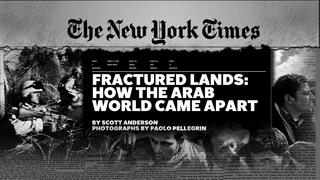
Guests
- Vijay Prashadprofessor of international studies at Trinity College and columnist for the Indian magazine Frontline.
As we speak with scholar Vijay Prashad about how the United States carried out regime change in Libya and left behind a failed state, he notes: “The story in Libya is not dissimilar to the story in Iraq.” Both are politically divided societies in which the United States deposed long-entrenched leaders, Muammar Gaddafi in Libya and Saddam Hussein in Iraq, and left behind failed states. Prashad adds that “in both instances, when the strongman was captured … they said, 'We are ready to negotiate,' and the United States essentially was not interested in negotiating.” He says the outcome in Libya contributed to the destabilization of Mali, Tunisia and much of northern Africa.
Transcript
JUAN GONZÁLEZ: I wanted to ask you to turn to another country in the Middle East: Libya. Clearly, the U.S.-backed move into Libya, the regime change, the execution of Gaddafi has left, in essence, a failed state there. And I’m wondering if you could talk about what’s happened there and also the impact on all of North Africa as a result of the situation in Libya right now.
VIJAY PRASHAD: Well, you know, the story in Libya is not dissimilar to the story in Iraq with Saddam Hussein or with Syria, which we’ve just been talking about. You know, the problem is, these are all divided societies, politically divided; to some extent, of course, the ethnic and question of tribe should play a role, but they are politically divided societies. To assume somehow that in each of these societies there’s one bad guy who everybody hates is the most simplistic understanding of the Middle East. And the United States, you know, through NATO, conducted a regime change operation inside Libya, just as they did in Iraq.
In both instances, when the strongman was captured—when Saddam was captured, when Gaddafi was captured—what they said to their captors is very revealing. They said, “We are ready to negotiate.” And the United States essentially was not interested in negotiating. You’ll remember, when Gaddafi was essentially lynched on the streets of Sirte, Hillary Clinton heard the news and laughed and said, “We came, we saw, we killed.” You know, we conquered. This kind of attitude to countries like Libya to Syria to Iraq means you underestimate the—whatever support these people have, you underestimate the divided nature of these societies. And the regime change operation in Libya not only has continued with the destabilization of Libya, but it’s destabilized Mali. It has threatened Tunisia. It has, of course, created problems in much of northern Africa.













Media Options